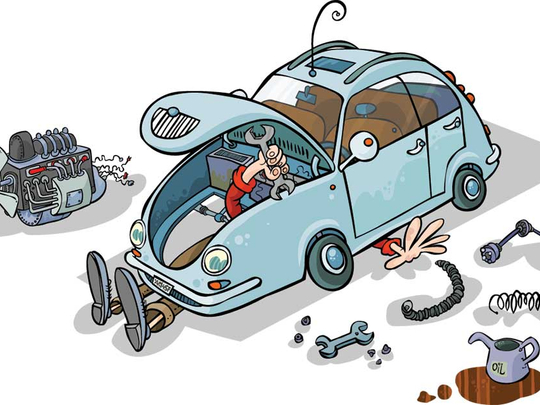
Tighten your belt
Winding around the various pulleys at the front of the engine is a series of belts that also endure heat and friction in their various roles. Their responsibilities cover things like driving the alternator or the AC compressor, and they tend to work perfectly well right up until they fail completely.
The timing and accessory drive belts should be checked every 40,000km and replaced every 80,000km, as the last thing you want is for a belt to brake when you’re a long way from anywhere.
Filter effects
Another way to ensure optimum engine performance, is to change your fuel filter at appropriate intervals. Generally, the fuel filter should be changed every 40,000km, or whenever indicated by the manufacturer.
The fuel filter traps contaminants before they enter the engine’s fuel delivery system, preventing a rough running engine, poor acceleration, decreased fuel economy and reduced power on high-speed roads.
Simply put, the fuel filter helps deliver the cleanest fuel possible to the engine.
Bright sparks
Spark plugs should be changed every 80,000km to prevent poor car starts, decreased fuel economy, sluggish engine performance and excessive fouling or deposits on the plug.
These defects will cause the engine to misfire. The number of misfires per kilometre goes up as the plugs age, increasing exhaust emissions, wasting petrol and reducing power. Manufacturers determine a threshold of acceptability for this and track the frequency of ignition misfires using the vehicle’s on-board diagnostic system.
Batteries not included
“Car batteries are big business in the Middle East,” says Mohammad Al Fayyad, Director of Customer Care and Aftersales at General Motors, which owns the ACDelco brand. That should come as no surprise, since our intense weather can shorten battery life.
Change your battery at the first sign of failure, typified by an inability to hold a charge.
Keeping cool
Keeping the cabin temperature under control can help avoid driver distraction and potential health complications in the heat.
A vehicle’s air-conditioning system should be checked right away if any of the following symptoms are present: musty smell upon activation, inadequate cooling, a red zone indication on the vehicle’s temperature gauge, or steam coming from the engine compartment.
Greasing up
Semi-synthetic oils should be changed every 5,000km. Fully synthetic oils should be changed every 10,000km. Oils must be changed because they inhibit rust and corrosion found in axles, engines, transmissions and cooling systems.
They also lubricate internal parts, thereby reducing the risk of mechanical failure, and offer excellent heat transfer properties that extend the service life of vehicles.
Breathing easy
Your car’s air filter also needs to be looked after because, in order for the engine to run well, it must have proper airflow. In fact, petrol is just one of the fuels that cause your engine to combust, as oxygen is also a key ingredient.
Conventional air filters, should be changed every 20,000km because they trap air-borne dust particles before they enter the engine, which prevents decreased engine performance and increased fuel consumption.
Braking news
Brake pads should be replaced every 30,000km, or when they exhibit deterioration. Signs that it’s time to change brake pads include chirping, grinding or squealing noises, along with difficulty stopping when the brake pedal is pressed.
Under pressure
According to a 2015 report by the US National Highway Traffic Safety Administration, the smaller the fleet, the greater the chance of tyre issues. “Fleets with 50 or fewer power units had 19.1 per cent of their tyres under inflated by 20psi or more,” the report notes. Hany Abdul Samad, Marketing Manager at Michelin Middle East, cautions that tyre pressure is even more of an issue in the GCC climate.
“Ensuring that your tyres are properly maintained and inflated is critical to motorist safety. Tyre pressure levels can increase during the summer heat so you should always check that your tyres are at the recommended level before setting off. If you do not treat them with the utmost care and attention they deserve, you compromise your safety. Every tyre needs the right amount of pressure.
Too little pressure can cause premature wear, damage, or even risk of failure. Too much pressure shortens your tyres’ lifespan and reduces traction.”
With a little vigilance, most modern vehicles have a useful lifetime of over 200,000km, according to the US Department of Transportation. These simple maintenance tips can help make sure every vehicle crosses the finish line.












